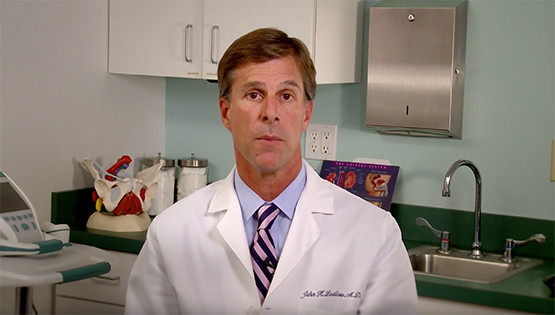Erectile Dysfunction: Simple Fix or Serious Health Issue?
A condition that affects more than 40 million men in the United States, Erectile Dysfunction (also known as impotence), is classified as the inability to get and keep an erection firm enough for sexual activity.
While having occasional erection trouble shouldn’t necessarily be alarming, if ongoing, Erectile Dysfunction (ED), can be a sign of a larger medical issue. At the very least, dealing with symptoms of ED can be very alarming, it can cause stress, affect your self-confidence and may lead to relationship issues.
The good news is, it is highly treatable and nearly 100% of men diagnosed with Erectile Dysfunction are able to be successfully treated. What are some signs that you may be struggling with ED?
Erectile Dysfunction (ED): Also known as impotence, ED happens when you cannot get and keep an erection firm enough for sex. Having erection trouble from time to time shouldn’t be alarming. However, if ED is ongoing, it may lead to stress, relationship problems and/or affect your self-confidence. Beyond the emotional and relationship concerns, ED may be a sign of an underlying health problem.
Symptoms of Erectile Dysfunction:
- Trouble getting an erection
- Trouble keeping an erection
- Reduced sexual desires
Erectile dysfunction can be an indication of other health concerns and can be affected by other medical conditions you may already struggle with. Since Erectile Dysfunction can be considered a vascular (or blood vessel) issue, it can be associated with other vascular concerns like heart disease. Men who struggle with ED may be at a higher risk for things like heart attack and stroke.
Risk Factors That May Put You at Higher Risk for ED Include:
- Heart disease
- High blood pressure
- Diabetes
- Obesity
- Clogged blood vessels (atherosclerosis)
- Metabolic syndrome — a condition that includes increased blood pressure, high insulin levels, body fat around the waist and high cholesterol
- Parkinson’s disease
- Multiple sclerosis
- Low testosterone
- Scar tissue inside the penis
- Certain prescription medications
- Tobacco use
- Alcoholism and other substance abuse
- Treatments for prostate cancer or enlarged prostate
- Surgeries or injuries affecting the pelvic area or spinal cord
The brain is responsible for triggering the physical responses that cause erections. It makes sense then that psychological issues, like the following, can all interfere with sexual activity and cause or worsen ED:
- Stress
- Fatigue
- Depression
- Anxiety
- Other mental health disorders
- Relationship Problems
How to Find Out if You Have Erectile Dysfunction:
- Physical exam of your penis and testicles, nerve function and vascular supply.
- Blood tests to check for signs of heart disease, diabetes, low testosterone levels and other health problems.
- Urine tests (urinalysis) to look for signs of diabetes and other underlying health conditions
- Ultrasound to check blood flow to your penis. We hold a wand-like device (transducer) over the blood vessels that supply the penis. A video image shows if you have blood flow problems.
- Overnight erection test — Most men have erections during sleep without realizing them. This test involves wrapping special tape around your penis before going to sleep. If the tape is separated when you wake, your penis was erect at some time during your sleep. This may indicate your ED is psychological rather than physical in nature.
Treatment Options for Erectile Dysfunction:
As mentioned, nearly all cases of Erectile Dysfunction are successfully managed and treated. We will work with you to find the right fit to manage your specific needs. There are several options available for treatment:
Medication:
Oral medication is often a first line treatment for healthy patients with ED. Many men find this to be a simple and effective way to manage their symptoms. Medications include:
- Sildenafil (Viagra)
- Tadalafil (Cialis)
- Vardenafil (Levitra)
These medications enhance the effects of nitric oxide, which is a natural chemical in your body, used to relax the muscles in the penis. By using this chemical, the medications are able to increase blood flow to the penis, which allows you to get an erection more easily. Medications can vary in dosage, how long they work and side effects. We will work with you to determine which medication may best fit your needs.
Medical Equipment/Procedures:
In other cases, you and your doctor may determine that a medical device or a simple procedure is your best option to treat Erectile Dysfunction. In these cases, you have several options including:
- Penile Pump: A vacuum constriction device is an external pump with a band on it that you can use to get and keep an erection.
- Implant: A penile implant may be used if the ED is due to a medical cause that is unlikely to resolve or improve on its own or with other medical treatments.
- Vascular reconstructive surgery: In some cases, vascular surgery may help improve the blood supply of the penis, which could improve your ability to get and maintain an erection.
If you or someone you love is dealing with the symptoms of Erectile Dysfunction, you are off to a great start learning more about this condition, potential risk factors and options for treatment. We at Western Michigan Urological Associates would love to work with you and assist in getting you the care you deserve. Ask Your Primary Care Provider for a Referral.
SOLTIVE™ SuperPulsed Laser System
WMURO patients can now benefit from the latest in stone removal and BPH treatment.
Common Urinary Issues
Have questions about urinary issues? Check out our interactive guide.
Low Testosterone
Get the facts on hormonal imbalance, its signs, symptoms, and statistics in the United States.



